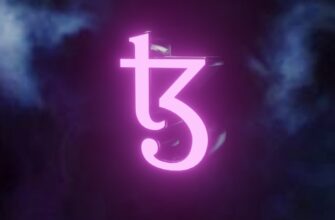- What is r/Crypto? Demystifying Reddit’s Cryptography Community
- Why r/Crypto Matters in Today’s Digital Landscape
- Core Topics Dominating r/Crypto Discussions
- Navigating r/Crypto: Rules and Best Practices
- Top Resources Recommended by r/Crypto Regulars
- Frequently Asked Questions (FAQ) About r/Crypto
- Is r/Crypto about Bitcoin or cryptocurrency?
- Can beginners participate in r/Crypto?
- How is r/Crypto moderated?
- Are academic questions allowed?
- What’s the difference between r/Crypto and r/cryptography?
- Maximizing Your r/Crypto Experience
What is r/Crypto? Demystifying Reddit’s Cryptography Community
When you hear “r crypto,” you might initially think of cryptocurrency discussions. But r/Crypto is actually Reddit’s premier community dedicated to cryptography—the science of secure communication. With over 150,000 members, this subreddit serves as a vital hub for professionals, students, and enthusiasts to discuss encryption algorithms, security protocols, and mathematical foundations of data protection. Unlike cryptocurrency-focused subs, r/Crypto maintains strict moderation to ensure conversations stay centered on cryptographic principles, implementations, and real-world applications.
Why r/Crypto Matters in Today’s Digital Landscape
In an era of escalating cyber threats, understanding cryptography is non-negotiable. r/Crypto provides:
- Expert Insights: Cryptographers and security engineers regularly share cutting-edge research
- Learning Resources: Curated materials for beginners to advanced practitioners
- News & Analysis: Discussions on vulnerabilities (like Heartbleed) and encryption standards
- Career Development: Networking opportunities in cybersecurity and academia
The subreddit’s emphasis on technical rigor makes it invaluable for anyone serious about digital security.
Core Topics Dominating r/Crypto Discussions
Dive into these recurring themes that shape the community:
- Encryption Algorithms: Deep dives into AES, RSA, and post-quantum cryptography
- Protocol Analysis: TLS/SSL, Signal Protocol, and zero-knowledge proofs
- Cryptanalysis: Techniques for breaking cryptographic systems
- Implementation Pitfalls: Common coding errors that compromise security
- Policy & Ethics: Debates on encryption backdoors and privacy laws
Navigating r/Crypto: Rules and Best Practices
To maintain quality, the subreddit enforces strict guidelines:
- No Cryptocurrency Content: Immediate removal of blockchain or Bitcoin discussions
- Cite Sources: Back claims with academic papers or reputable references
- No Homework Solutions: Ask conceptual questions, not answers to assignments
- Low-Effort Posts Prohibited: Memes and off-topic content are banned
Pro tip: Use the search function before posting—many fundamentals are covered in archived threads.
Top Resources Recommended by r/Crypto Regulars
Accelerate your learning with these community-vetted materials:
- Books: “Applied Cryptography” by Bruce Schneier, “Serious Cryptography” by Jean-Philippe Aumasson
- Courses: Stanford’s Crypto I on Coursera, Cryptopals challenges
- Tools: OpenSSL, Wireshark for packet analysis, Cryptool for visualization
- Research Portals: IACR’s ePrint archive, NIST post-quantum crypto project
Frequently Asked Questions (FAQ) About r/Crypto
Is r/Crypto about Bitcoin or cryptocurrency?
No. The subreddit exclusively discusses cryptographic science. For cryptocurrency, visit r/CryptoCurrency or r/Bitcoin.
Can beginners participate in r/Crypto?
Absolutely! Start with the wiki’s Beginner Resources section. Ask clear, specific questions—avoid broad requests like “Explain cryptography.”
How is r/Crypto moderated?
Experienced cryptographers enforce rules rigorously. Off-topic posts get removed within minutes. Repeat violations result in bans.
Are academic questions allowed?
Yes, if they promote discussion. However, requests to solve homework problems violate Rule 4.
What’s the difference between r/Crypto and r/cryptography?
r/Crypto focuses on technical depth and research, while r/cryptography allows broader topics including history. Both prohibit cryptocurrency talk.
Maximizing Your r/Crypto Experience
Join 5,000+ daily active users by:
- Reading the wiki before posting
- Using precise technical language (e.g., “SHA-256 collision resistance” vs. “hashing”)
- Contributing to Trivia Thursday threads for knowledge testing
- Participating in AMAs with industry experts
Whether you’re analyzing lattice-based cryptography or implementing TLS 1.3, r/Crypto remains the internet’s most authoritative cryptography forum. Bookmark it today to stay ahead in the encryption arms race.








